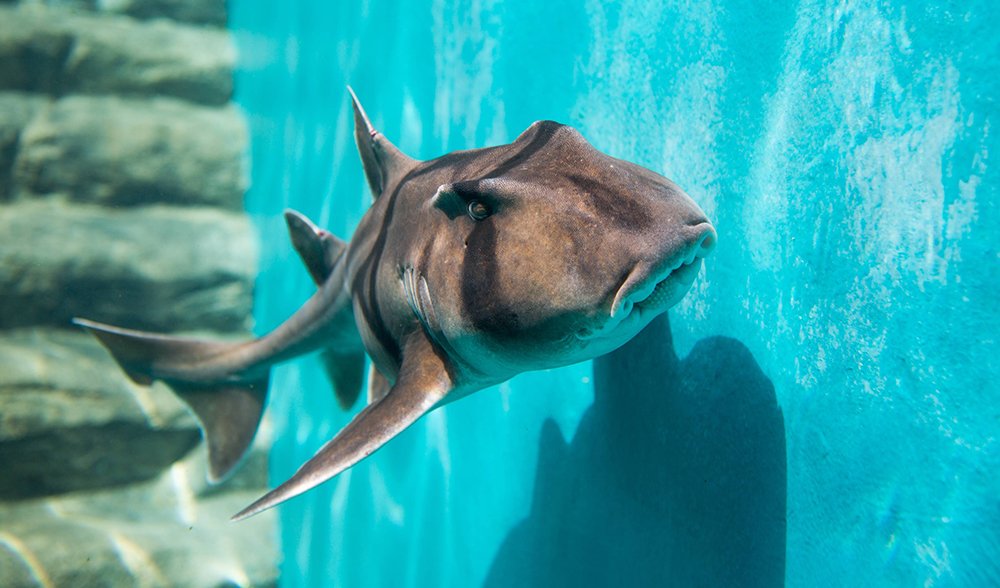Port Jackson sharks have individual personalities

PORT JACKSON SHARKS, found in coastal regions in southern Australia, display predictable and consistent traits, such as their individual willingness to take risks, according to a study published today.
“Animal personalities are much like human personalities,” explained Culum Brown, a biologist at Macquarie University in Sydney, and co-author of the paper.
“We are largely born with our personality – it’s encoded in our genes – but it can also be influenced by experience during life.”

The distinctive-looking Port Jackson shark has a pig-like snout, ridges above the eyes and a harness-like pattern across the shoulder. (Image: Macquarie University)
Some sharks are bolder than others
The researchers, led by Evan Byrnes at Macquarie University, placed 17 sharks in different scenarios to elicit responses to stressful situations.
The first test assessed levels of boldness (the propensity to take risks). Individual sharks were placed into a new environment, and researchers observed how long it took each shark to emerge from a shelter and begin exploring the unfamiliar territory.
For the second test, which assessed reactions to stress, sharks were handled and moved between tanks. Researchers then observed how long each shark took to recover – that is, to return to their normal state – following the ordeal.
RELATED: Shark communication: Port Jackson sharks
The tests were repeated multiple times, and the findings, published today in The Journal of Fish Biology, showed consistent responses by each individual shark, suggesting their inherent propensity for a particular course of action.
In the animal world, just like among humans, personality traits can affect behaviour, said Culum.
“I have no doubt that an animal’s personality, or even a human’s, influences how they respond to various situations emotionally. Aggressiveness, for example, is often measured as a personality trait and it would most likely count as an emotional response in social situations,” he said.
Evolutionary reason for personality difference
Personality is exhibited among at least 200 animals, including fish, mammals and birds. Boldness is one of the most commonly studied traits among animals, and its variance may have far-reaching consequences, from reproductive success to foraging ability.
Interestingly, there probably isn’t a ‘better’ or ‘worse’ set of traits. In evolutionary terms, a species will benefit from a broad range of personalities among individuals.
“Increasingly, behavioural ecologists recognise that it is unlikely that any particular behavioural type would do well across a wide variety of situations and contexts in the natural world,” said Culum.
RELATED: The ultimate guide to Australian sharks
“Nature is highly unpredictable at times, so it may well pay to have some individuals within a population that are ‘optimised’ for varying environmental contexts.”
Culum said understanding these behavioural differences in sharks – one of the ocean’s top predators – has relevance for the wider marine ecosystem, as well as how the species is managed.
“The main thing that emerges from this work is that each shark is an individual, with predictable behavioural responses to certain events… That means that, for example, when people and sharks interact, each shark is going to respond to that interaction differently.”
The research team has also launched a program where groups or individuals can ‘adopt’ a Port Jackson shark. For a contribution ranging from $5 to $500, sponsors can name a shark, receive a photo of their shark, and the ability to follow their shark’s movements. Find out more here.
READ MORE:




